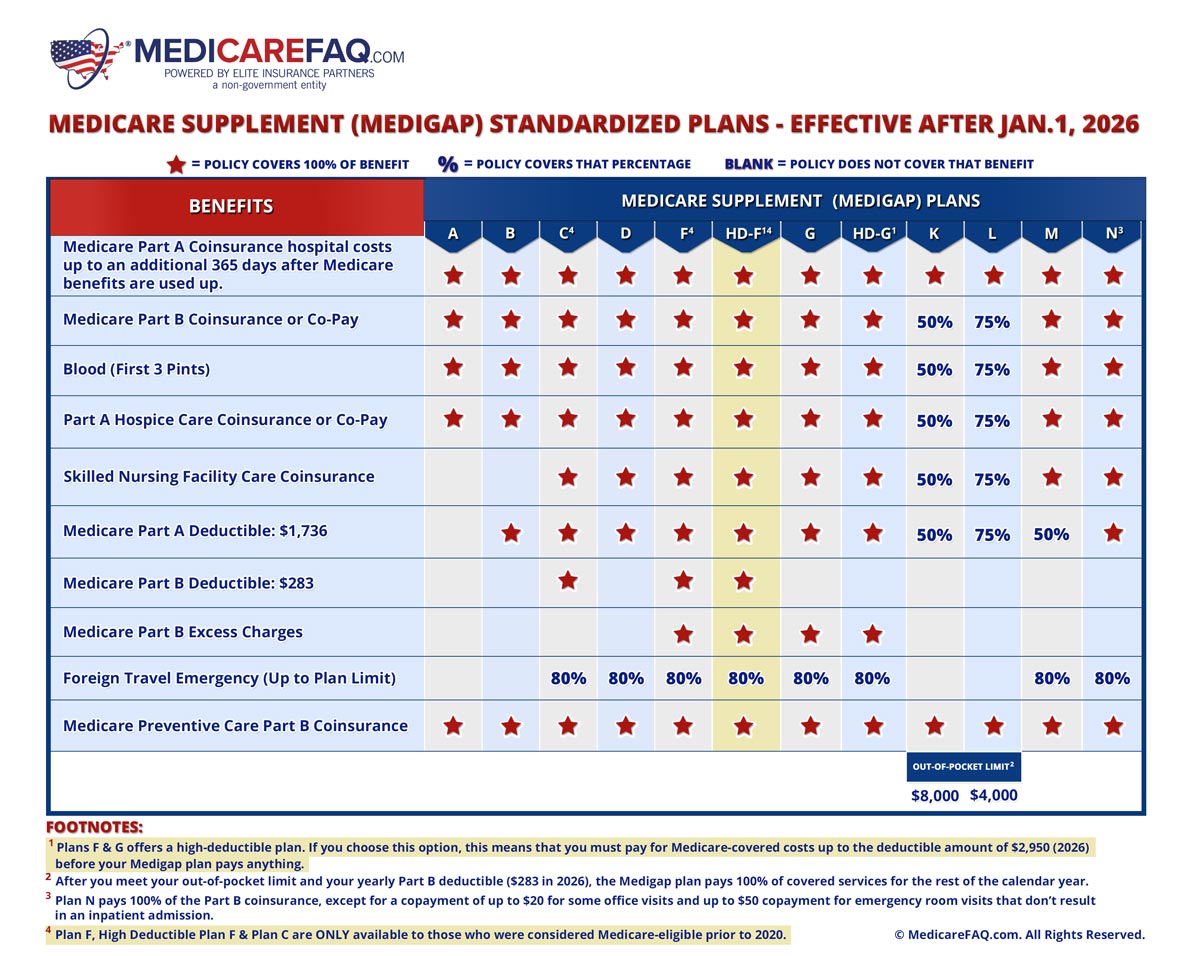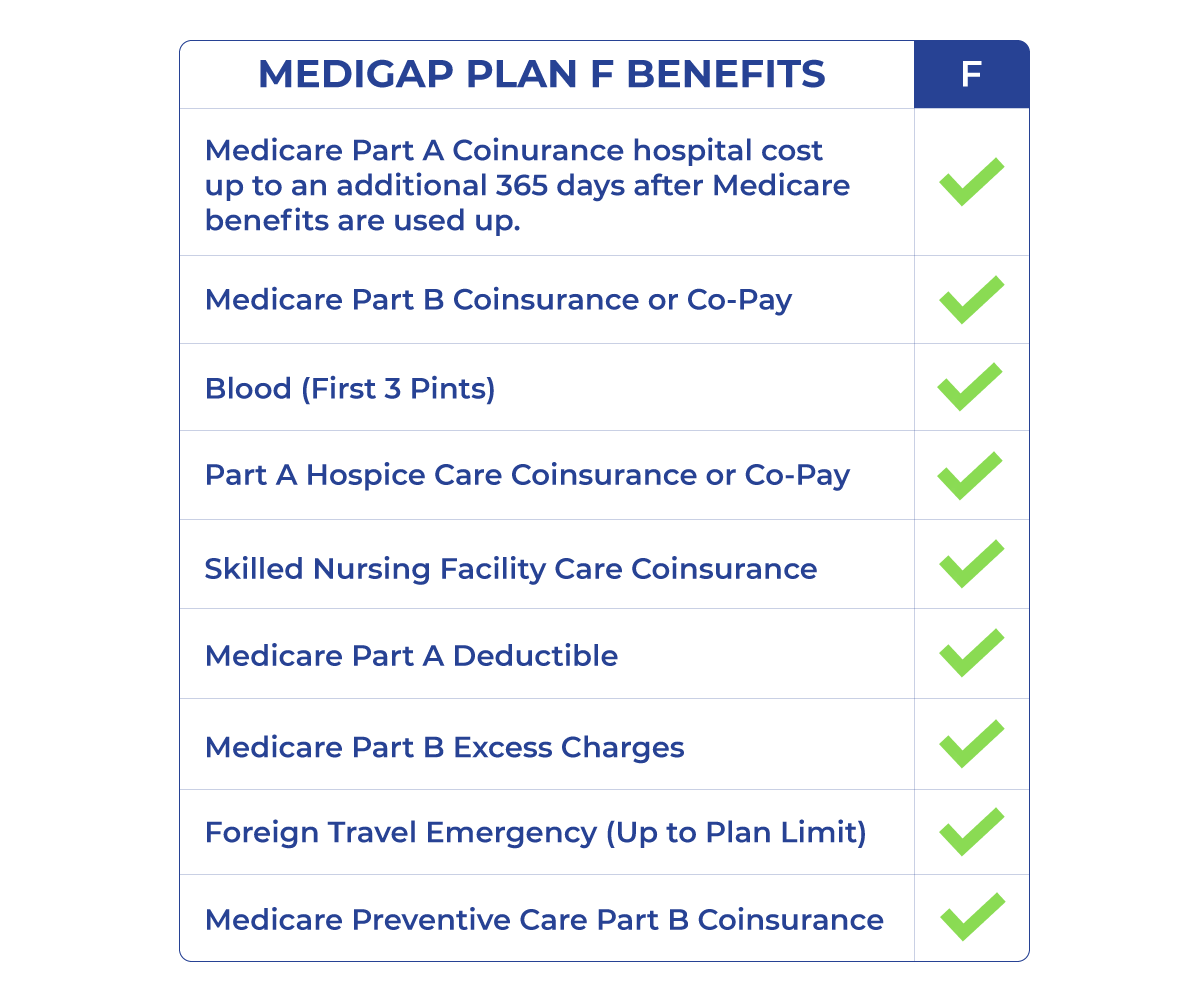Navigating Medicare with BCBS Plan F Supplement Coverage
Considering the complexities of healthcare costs during retirement, it's natural to seek peace of mind. For many, a Medicare Supplement plan can offer that sense of security. Among these supplements, BCBS Plan F has historically been a popular choice, providing comprehensive coverage to help manage out-of-pocket expenses.
Medicare, while a valuable resource, doesn't cover all healthcare costs. This is where Medicare Supplement insurance, often called Medigap, comes into play. These plans, offered by private insurance companies like Blue Cross Blue Shield (BCBS), help pay for some of the out-of-pocket expenses Original Medicare doesn't cover, like copayments, coinsurance, and deductibles. BCBS Plan F, specifically, was designed to offer extensive coverage for these gaps, creating a more predictable healthcare budget for beneficiaries.
Before the changes brought about by the Medicare Access and CHIP Reauthorization Act of 2015 (MACRA), BCBS Plan F was available to all newly eligible Medicare beneficiaries. However, MACRA made changes to Medigap plans, and those who became eligible for Medicare on or after January 1, 2020, could no longer enroll in Plan F. Those who were already enrolled prior to this date could maintain their coverage. This change underscores the importance of understanding your eligibility and exploring all available options.
Understanding the nuances of Medigap plans can feel overwhelming. However, focusing on the essential aspects of each plan can simplify the process. BCBS Plan F, when available, covers the Medicare Part A and Part B deductible, coinsurance, and copayments, in addition to other expenses. This comprehensive coverage contributed to its popularity, providing a sense of financial security to those navigating the healthcare system in retirement.
Exploring the available Medicare Supplement plans offered by BCBS is a crucial step in planning for healthcare expenses in retirement. While Plan F might not be an option for everyone, BCBS offers other plans, such as Plan G and Plan N, that offer similar coverage and can help manage costs. Consulting with a licensed insurance agent can provide personalized guidance based on your individual needs and circumstances.
Historically, Medigap plans like Plan F emerged to address the gaps in Original Medicare coverage. The standardization of these plans helped create a transparent marketplace where consumers could compare options from different insurers like BCBS. Plan F became a prominent choice due to its extensive coverage. The changes introduced by MACRA, while intended to encourage cost-consciousness in healthcare, also impacted access to Plan F for new beneficiaries.
One of the main benefits of BCBS Plan F was its predictability. It offered comprehensive coverage, reducing the financial uncertainty associated with healthcare expenses. This predictability allowed beneficiaries to budget more effectively and focus on their well-being rather than worrying about unexpected medical bills.
Advantages and Disadvantages of BCBS Plan F
| Advantages | Disadvantages |
|---|---|
| Comprehensive Coverage | No longer available for new Medicare beneficiaries |
| Predictable Healthcare Costs | Potentially higher premiums compared to other Medigap plans |
| Peace of Mind |
Several alternatives to Plan F exist, such as Plan G and Plan N, which offer similar benefits with slight variations in coverage and cost-sharing. Choosing the right plan depends on individual needs and budget considerations.
Frequently Asked Questions:
1. What does BCBS Plan F cover? (Answer: Historically, it covered most out-of-pocket expenses for Original Medicare.)
2. Is BCBS Plan F still available? (Answer: Not for those newly eligible for Medicare after January 1, 2020.)
3. What are the alternatives to BCBS Plan F? (Answer: Plans such as Plan G and Plan N offer similar coverage options.)
4. How do I enroll in a BCBS Medicare Supplement plan? (Answer: Contact a licensed insurance agent or visit the BCBS website.)
5. What are the eligibility requirements for Medicare Supplement plans? (Answer: You must be enrolled in both Medicare Part A and Part B.)
6. How much do Medicare Supplement plans cost? (Answer: Premiums vary depending on the plan and the insurance company.)
7. Can I switch Medicare Supplement plans? (Answer: Yes, under certain circumstances, you may be able to switch plans.)
8. Where can I find more information about BCBS Medicare Supplement plans? (Answer: Contact BCBS directly or visit their website.)
One helpful tip for navigating Medicare Supplement plans is to compare plans carefully, considering your individual needs and budget. Working with a licensed insurance agent can provide valuable personalized guidance during this process.
In conclusion, understanding the complexities of Medicare and Medicare Supplement coverage is crucial for ensuring a secure financial future during retirement. While BCBS Plan F offered valuable comprehensive coverage, it's essential to explore all available options, including plans like G and N, to find the best fit for individual needs. Considering your current health status, budget, and future healthcare needs will help guide you toward the most appropriate choice. Proactively engaging with the process, comparing plans, and seeking expert advice will empower you to make informed decisions about your healthcare coverage and enjoy a more secure and fulfilling retirement. Consulting with a licensed insurance agent or visiting the official Medicare website are excellent starting points for gathering information and making well-informed choices.
Honoring lifes journey sunset funeral home in danville illinois
Dominate your league choosing the top fantasy football defense
Find your perfect rav4 hybrid in portland your ultimate guide









